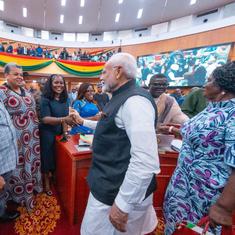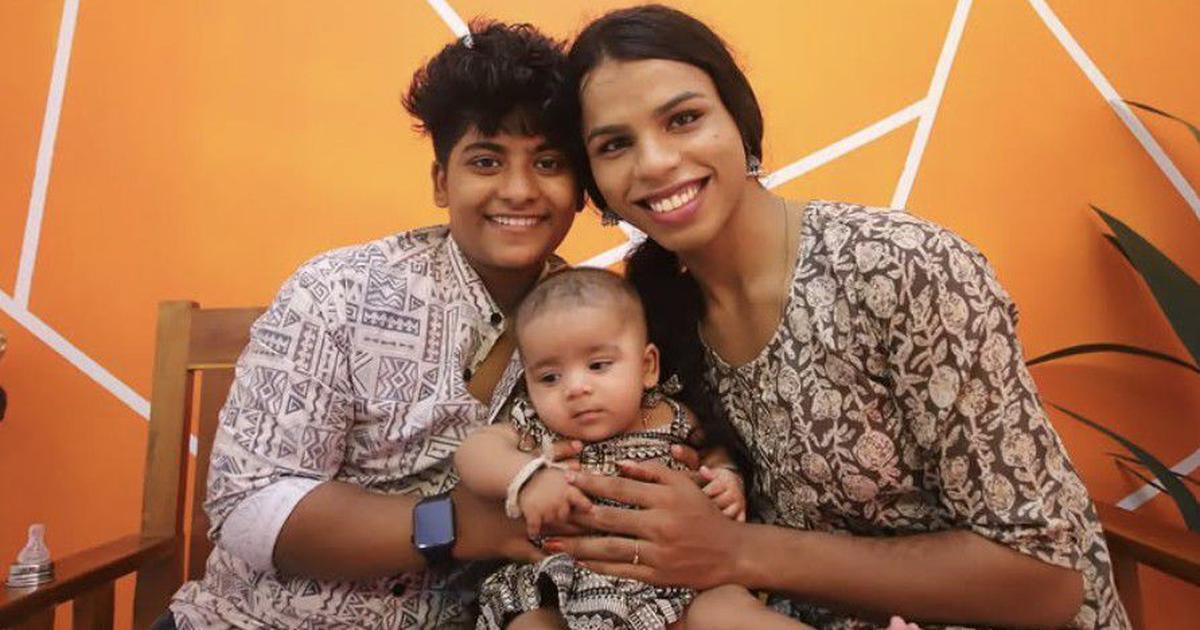Zahhad and Ziya Paval will never forget the call they received on the morning of June 2. On the line was their lawyer, Padma Lakshmi, her voice brimming with excitement. The Kerala High Court had delivered its verdict in a case filed by them in 2023. Their two-year struggle for a simple, yet profoundly important, piece of paper was over.
In a landmark decision, Justice Ziyad Rahman AA of the Kerala High Court directed the Kozhikode Municipal Corporation to issue a new birth certificate for their daughter, Zabiya: one that removed the columns for “father” and “mother” and simply listed Zahhad and Ziya as her “parents”.
Zahhad, born a woman, identifies as a transgender man and gave birth to Zabiya in February 2023. The child was conceived with Ziya, who was born a man and now identifies as a transgender woman.
“The judgement was totally unexpected and felt too good to be true,” recalls Zahhad, a 25-year-old accountant. For him and Ziya, a 24-year-old professional dancer, this was more than just a legal victory. It was the affirmation of their transgender family.
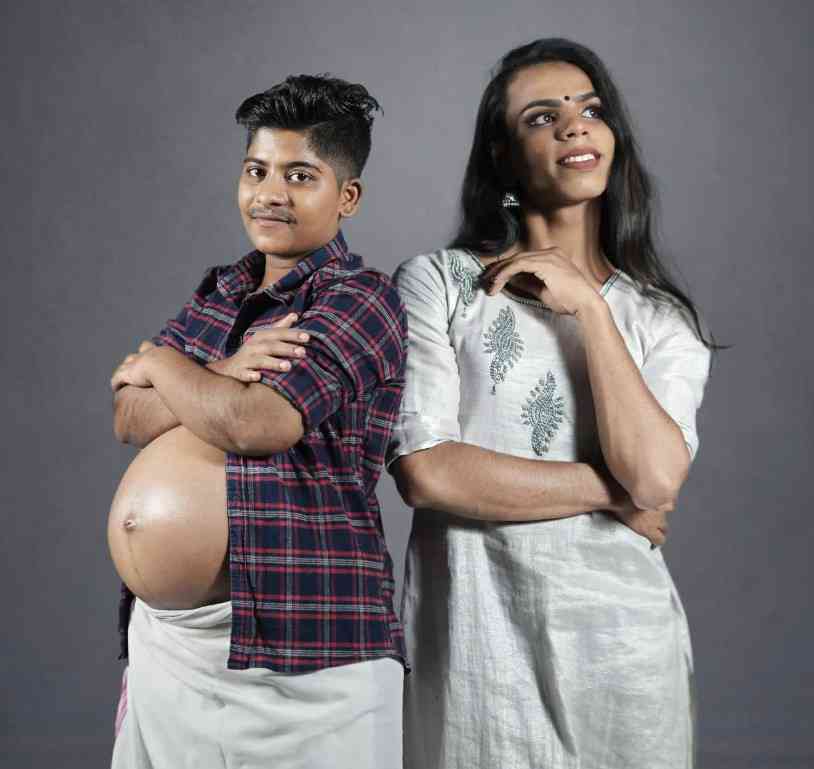
Motherhood and a birth certificate
Zahhad and Ziya met through social media and have been together since 2020. They live together in Kozhikode. Zahhad comes from a Christian family in Thiruvananthapuram and Ziya from a Muslim family in Malappuram.
Both of them possess transgender identity cards issued under the Transgender Persons (Protection of Rights) Act, 2019. Zahhad’s Aadhaar card lists his gender as male and Ziya’s shows hers as female.
Under the 2019 Act, applicants not need to undergo sex reassignment surgery or any other medical procedure in order to obtain a transgender identity card. Similarly, self-identification is sufficient for gender change on an Aadhaar card.
The story began with the couple’s desire for a child. “Becoming a mother is the dream of every woman, including trans women,” Zahhad said. But for transgender couples in India, adoption remains a near-impossible bureaucratic maze.
Seeing Ziya’s deep-seated wish, Zahhad, a trans man, made a profound decision. He would pause his hormonal therapy for transitioning from female to male – which is a prerequisite for undergoing sex-change surgery – to carry their child.
“My ultimate dream was to provide the gift of motherhood to Ziya,” he said. “That is what kept me going through all the difficulties of pregnancy.”
But the birth of a baby girl in 2023, brought a new, unexpected hurdle.
“It was a very difficult moment when we saw the birth certificate, listing me as mother and Ziya as father,” Zahhad recounted. The document, a foundational identity paper, fundamentally misgendered them. It reversed their lived realities – Zahhad as a trans man and Ziya as a trans woman – and locked them into gender identities they had fought to move beyond.
Their immediate concern was for Zabiya. “We knew that Zabiya could face a lot of difficulties getting an Aadhaar card or passport and other primary documents because of the mismatch between our gender identities and our gender listed on her birth certificate,” Zahhad said. “This was our main concern.”
They knew they had to act, not just for themselves, but for everyone who might follow in their footsteps. “We immediately thought that this needed to be changed,” he said. “We also knew that this would be favourable to the whole trans community.”
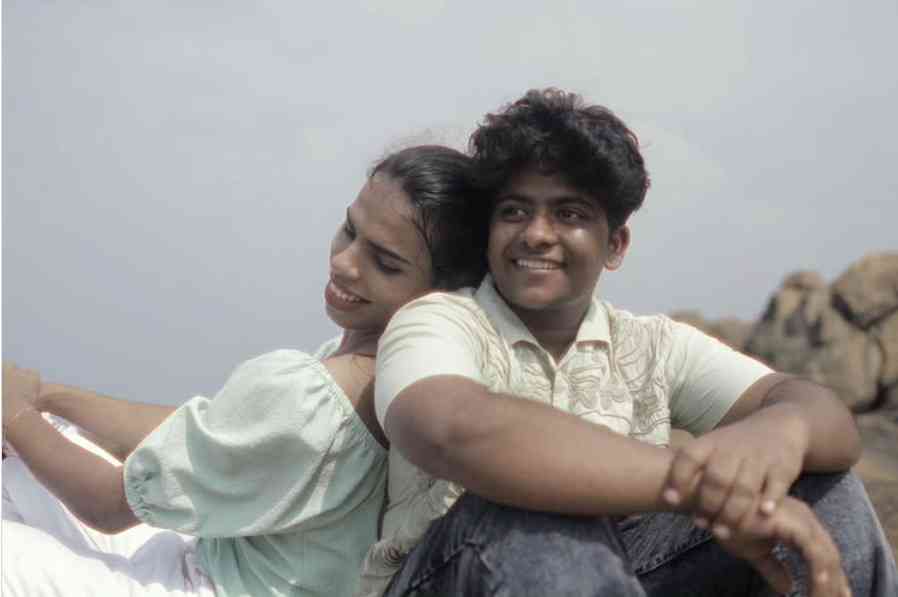
Bureaucratic battle
Their first attempts at a solution were met with a bureaucratic wall. They made representations to the Kozhikode Municipal Corporation and filed a grievance on the chief minister’s online portal so that the birth certificate simply list them as parents rather than as “mother” and “father”, but to no avail.
The corporation’s position was simple: the law, specifically Form No 5 of the Kerala Registration of Births and Deaths Rules, 1999 mandated columns for "mother" and "father." Its hands were tied.
This forced the couple to seek legal recourse. They turned to Padma Lakshmi, a fellow transgender person and a lawyer known for her work within the trans community. “Padma is a part of our community and like a sister to us,” said Zahhad. “That is why it was easy for us to approach her.”
Within six months of Zabiya’s birth, they filed a writ petition in the Kerala High Court.
The legal journey was arduous. “Five different judges heard our case for over a year,” Zahhad pointed out. The long wait was difficult, but their faith in their legal team, which included legal academic Mariyamma AK and Advocate on Record at the Supreme Court, Prashant Padmanabhan never wavered.
Lakshmi, who had long known the couple, felt a personal stake in the outcome. “It was my personal wish to provide the amended birth certificate as a birthday gift to Zabiya,” she told Scroll.
Given the lack of knowledge of transgender struggles, arguing the case was not easy. “The facts of the case are very difficult to understand for a normal person,” she said. “Finally, Justice Rahman understood that this is the life of a transgender person. They need support from our society.”
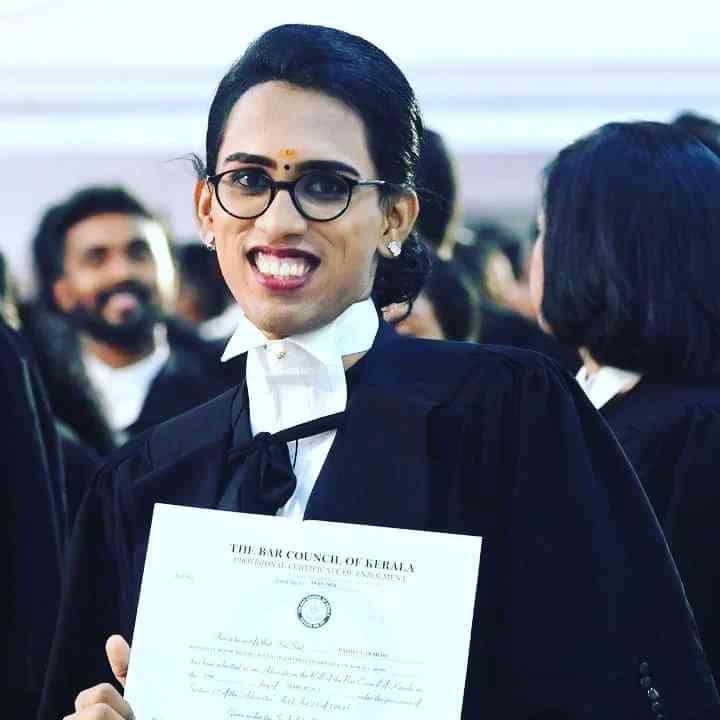
A ‘living’ law for a changing society
Rahman’s judgment responded to the legal challenge with judicial empathy and progressive interpretation. Instead of seeing the Registration of Births and Deaths Act, 1969 as a rigid text, the court viewed it as a “living organism” that must adapt to societal changes.
The court acknowledged the petitioners’ fears, stating their apprehension of “confusions and prejudices” was genuine. It recognised that while the law was framed with a binary concept of gender, society had evolved. The court cited landmark Supreme Court rulings, including the NALSA judgment of 2014 which granted legal recognition to transgender persons and the Deepika Singh case of 2022, which recognised “atypical” families outside the traditional notion of a married mother and father, holding that such “family units” must not face disadvantage under law.
Rahman’s judgement quoted a powerful passage from the Deepika Singh verdict. “Such atypical manifestations of the family unit are equally deserving not only of protection under law but also of the benefits available under social welfare legislation,” the apex court had observed. “The black letter of the law must not be relied upon to disadvantage families which are different from traditional ones.”
Rahman’s solution was innovative and practical. He noted that the Registration of Births and Deaths Act and the Kerala Registration of Births and Deaths Rules only required registrars to furnish “extracts” of the birth register, not an exact copy of all information. This meant the birth certificate could be modified to reflect the parents' identities without altering the primary register that the municipal corporation possesses. The court directed the corporation to issue a new certificate for Zabiya – one that respected her parents’ gender identities by simply naming them as "parents".
The court asserted its duty to intervene when laws fail to keep pace with social reality, stating that the case was fit for “social justice adjudication” to carry out “social context judging”. It defined these as being sensitive and positively inclined towards a socio-economically weaker party. This prevents, the court said, the miscarriage of justice caused by the imbalance between unequal parties in an adversarial process.
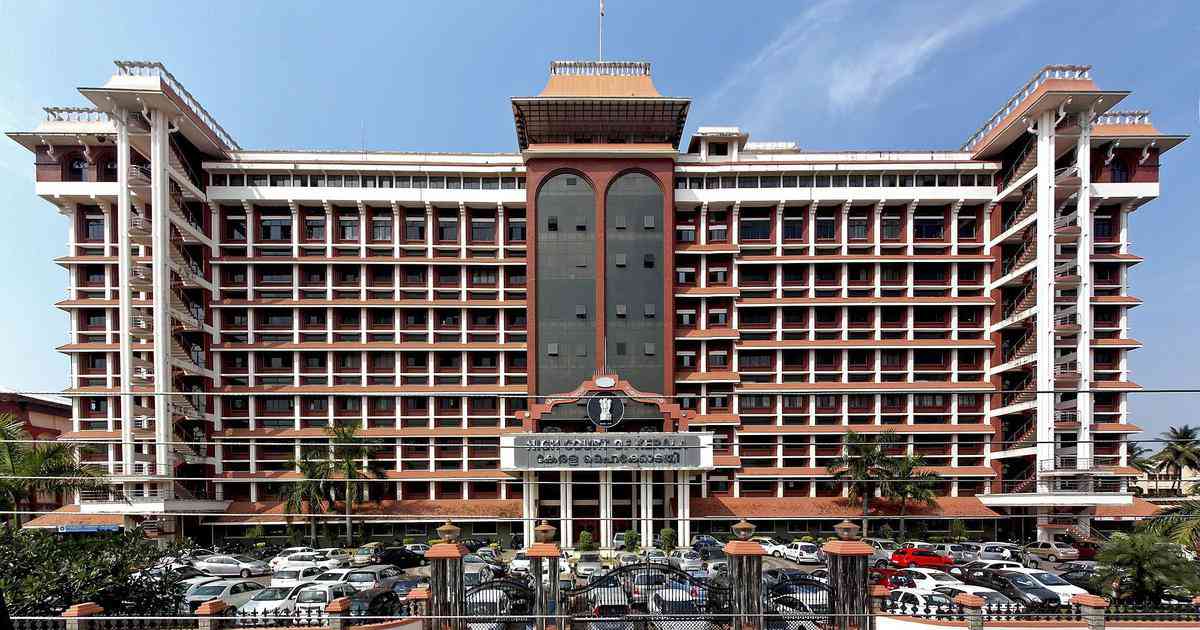
A victory for trans rights
For the couple, the verdict is a vindication. “This is not just a victory for Zahhad and Ziya; it is a victory for the whole trans community,” Zahhad said.
He was candid about the immense challenges they had faced – from his health complications post-delivery to negative comments from society and even some within their own community.
Yet, their story is also one of profound love and support. Ziya cared for Zahhad and Zabiya for a year while he recovered his health. He called their partnership “a gift from God”.
Their only wish now is to provide a stable, loving home for their daughter, who already enjoys dancing and singing, Zahhad said with a giggle, just like Ziya.
The judgment has opened a door, offering a glimmer of hope that the right to family is not beyond the reach of transgender persons in India. But Zahhad offered a word of caution given that India was still socially conservative when it came to trangender rights. “Every trans person needs a family,” he said. “But they should think and then proceed … because it is not an easy task.”



